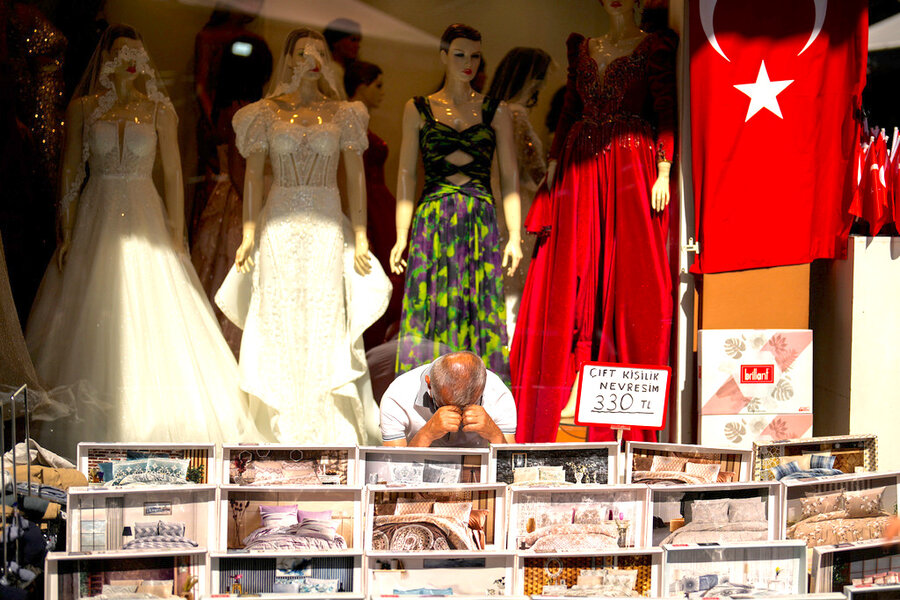A newly ‘rational’ Turkey?
Loading...
Turkey has the world’s 19th-largest economy and a leader, Recep Tayyip Erdoğan, who has been in power for 20 years. As a pivotal state between Europe and the Middle East, it enjoys a commanding perch in geopolitics, able to call in financial favors from wealthy nations. Yet after President Erdoğan won reelection on May 28, he appointed an economic czar who promises to re-create the Turkish economy almost from scratch, as if Turkey itself had to be reborn.
From now on, said Mehmet Şimşek, a former Merrill Lynch economist appointed as finance minister, the government’s principles in guiding the economy will be “transparency, consistency, predictability, and compliance with international norms.” He promised to bring accountability, “rules-based” policymaking, and a “return to rationality.”
Not only that, but Mr. Erdoğan’s choice to head the central bank, Hafize Gaye Erkan, took office with an international reputation for grounding her decisions in economic reality. “Data is indisputable,” she stated in a biography based on her high-level experience at Goldman Sachs and First Republic Bank, as well as an education from Princeton, Stanford, and Harvard.
These two respected appointees may indeed reflect a new direction for Turkey. At the least, they signal a possible epiphany for Mr. Erdoğan on how an economy should run. His very unorthodox ideas on economic management have led to a financial crisis and high inflation that almost cost him the election. (He won with 52%.)
The president has “effectively accepted the invalidity of his macroeconomic theory that ‘high interest rates cause inflation,’ though he has not said so publicly,” wrote Turkish American economist Timur Kuran on Twitter. Mr. Erdoğan sees high interest rates as un-Islamic, calling them the “mother and father of all evil.”
To ensure interest rates stayed low in the run-up to the election, he had to effectively take control of the central bank. He appointed four central bank governors in four years and placed his son-in-law as finance minister. The result was inflation at 85% last year and a critical depletion of foreign reserves to prop up the value of a much-diminished Turkish currency.
Now foreign analysts are watching to see if Ms. Erkan will raise interest rates by up to 25% to tame inflation and win back foreign investors. More importantly, they wait to see if she will be fired by the president if the economy slows too much for his party to prevail in local elections next year. According to a report by Middle East Eye, the new finance minister was able to present economic numbers to the president that persuaded him to support a credible approach on interest rates.
“You have to see all the data and understand what is going on yourself,” Mr. Şimşek supposedly told the president. Or as the finance minister told the people of Turkey, the country needs a “return to rationality.”





